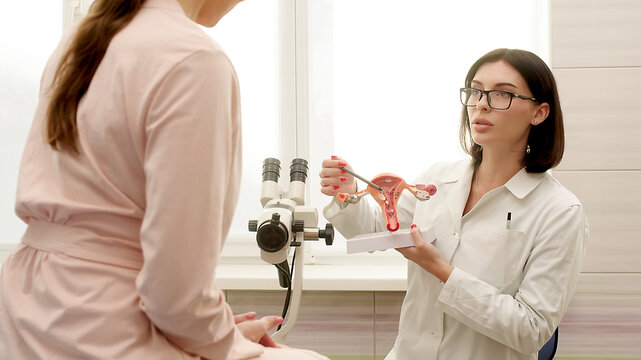Endometriosis is one of the most complex reproductive health conditions affecting women today. It not only causes severe pelvic pain but is also a significant contributor to female infertility. At First Point MD, we believe that understanding the link between endometriosis and fertility is the first step toward effective management and treatment. In this comprehensive guide, we will explore how endometriosis impacts reproductive health, the science behind infertility caused by this condition, and the latest treatment options that give women hope for starting or expanding their families.
What is Endometriosis?
Endometriosis is a chronic condition where endometrial-like tissue—the lining that normally grows inside the uterus—develops outside of it. These abnormal growths can appear on the ovaries, fallopian tubes, pelvic lining, and even beyond the reproductive organs. Unlike normal uterine tissue, these lesions do not exit the body during menstruation. Instead, they become inflamed, leading to:
-
Chronic pelvic pain
-
Painful menstrual cycles (dysmenorrhea)
-
Pain during intercourse (dyspareunia)
-
Heavy menstrual bleeding
-
Difficulty conceiving
Because this misplaced tissue behaves like normal endometrium—thickening, breaking down, and bleeding—it causes scarring, adhesions, and cysts that may damage reproductive structures.
The Connection Between Endometriosis and Infertility
Endometriosis and infertility are closely linked, with studies estimating that 30–50% of women with endometriosis experience difficulty conceiving. The reasons are multi-faceted and include:
Structural Damage to Reproductive Organs
Endometriotic lesions and scar tissue can distort pelvic anatomy, causing blockages in the fallopian tubes or restricting the movement of eggs and sperm.
Inflammation in the Pelvic Environment
Endometriosis triggers chronic inflammation, releasing harmful cytokines and chemicals that interfere with sperm function, egg quality, and embryo implantation.
Hormonal Imbalances
Women with endometriosis often experience progesterone resistance and hormonal disruption, making it harder for embryos to implant successfully in the uterine lining.
Reduced Ovarian Reserve
Endometriotic cysts (endometriomas) on the ovaries can damage healthy ovarian tissue, lowering the number and quality of eggs available for fertilization.
Symptoms That Suggest Endometriosis-Related Infertility
Women who face delayed conception along with the following symptoms should consider evaluation for endometriosis:
-
Persistent pelvic or abdominal pain
-
Pain during ovulation
-
Severe menstrual cramps unrelieved by medication
-
Pain during or after sexual intercourse
-
Irregular menstrual cycles
-
History of ovarian cysts
Identifying the condition early improves the chances of preserving fertility and planning effective treatments.
Diagnosis of Endometriosis in Women with Fertility Concerns
Diagnosing endometriosis can be challenging because symptoms often mimic other gynecological conditions. At First Point MD, we utilize advanced diagnostic methods such as:
-
Pelvic ultrasound to detect cysts or structural abnormalities
-
Magnetic Resonance Imaging (MRI) for detailed imaging of lesions
-
Laparoscopy, the gold standard, where a minimally invasive camera procedure directly identifies and removes suspicious tissue
-
Blood markers and hormonal testing to assess ovarian reserve and reproductive health
Latest Treatment Options for Endometriosis and Infertility
The management of endometriosis depends on the severity of symptoms, the stage of the disease, and whether a woman is trying to conceive. Modern medicine now offers several fertility-preserving options.
Medical Management
Medications can help control symptoms, though they are not always fertility-focused:
-
Hormonal therapies (oral contraceptives, progestins, GnRH agonists/antagonists) suppress endometrial tissue growth and reduce pain.
-
Anti-inflammatory medications relieve pelvic discomfort and support overall well-being.
However, these treatments may temporarily prevent pregnancy, so they are often used before fertility-focused approaches.
Laparoscopic Surgery
Surgical intervention plays a critical role in fertility management:
-
Excision or ablation of endometrial lesions improves pelvic anatomy and increases the likelihood of natural conception.
-
Removal of adhesions restores the normal function of reproductive organs.
-
Studies show that women who undergo laparoscopic surgery often experience higher pregnancy rates compared to untreated women.
Assisted Reproductive Technology (ART)
For women who continue to face infertility despite surgery, ART provides advanced solutions:
-
Intrauterine Insemination (IUI): Often recommended for women with mild to moderate endometriosis, this method places sperm directly inside the uterus to improve fertilization chances.
-
In Vitro Fertilization (IVF): Considered the gold standard for endometriosis-related infertility, IVF bypasses damaged fallopian tubes and provides higher success rates.
-
Egg freezing (oocyte cryopreservation): Recommended for women diagnosed at a young age, allowing them to preserve their fertility before the disease worsens.
Integrative and Lifestyle Approaches
In addition to medical treatments, adopting lifestyle changes can improve fertility outcomes:
-
Anti-inflammatory diet: Rich in omega-3 fatty acids, fruits, vegetables, and whole grains
-
Stress management: Mind-body therapies such as yoga, meditation, and acupuncture can enhance reproductive health
-
Maintaining a healthy weight: Helps regulate hormones and improve ovulation
-
Regular exercise: Reduces inflammation and supports emotional well-being
Future Directions in Endometriosis and Fertility Treatments
Ongoing research is bringing hope to millions of women’s health worldwide. Innovations include:
-
Stem cell therapies aimed at regenerating damaged ovarian tissue
-
New non-invasive biomarkers for early detection of endometriosis
-
Targeted immunotherapy to reduce inflammation without affecting reproductive function
-
Advanced fertility preservation techniques that provide options for younger women with a family history of the disease
Emotional and Psychological Support for Women with Endometriosis
Living with endometriosis and infertility can take a toll on mental health. Many women experience stress, anxiety, and depression while navigating the challenges of conception. Emotional support is just as important as assisted reproductive technologies:
-
Support groups help women share their experiences and reduce isolation.
-
Counseling services provide coping strategies for emotional resilience.
-
Partner involvement strengthens relationships and ensures shared understanding during the fertility journey.
Conclusion
Endometriosis is more than just a painful condition—it is one of the leading causes of female infertility. But with advancements in medical treatments, surgical techniques, and assisted reproductive technologies, women today have more opportunities than ever to overcome fertility challenges. At First Point MD, we are committed to helping women navigate this journey with comprehensive diagnostic tools, personalized treatment plans, and compassionate care.
For women facing the dual challenge of endometriosis and infertility, early diagnosis, proactive treatment, and emotional support can make the dream of parenthood a reality.


